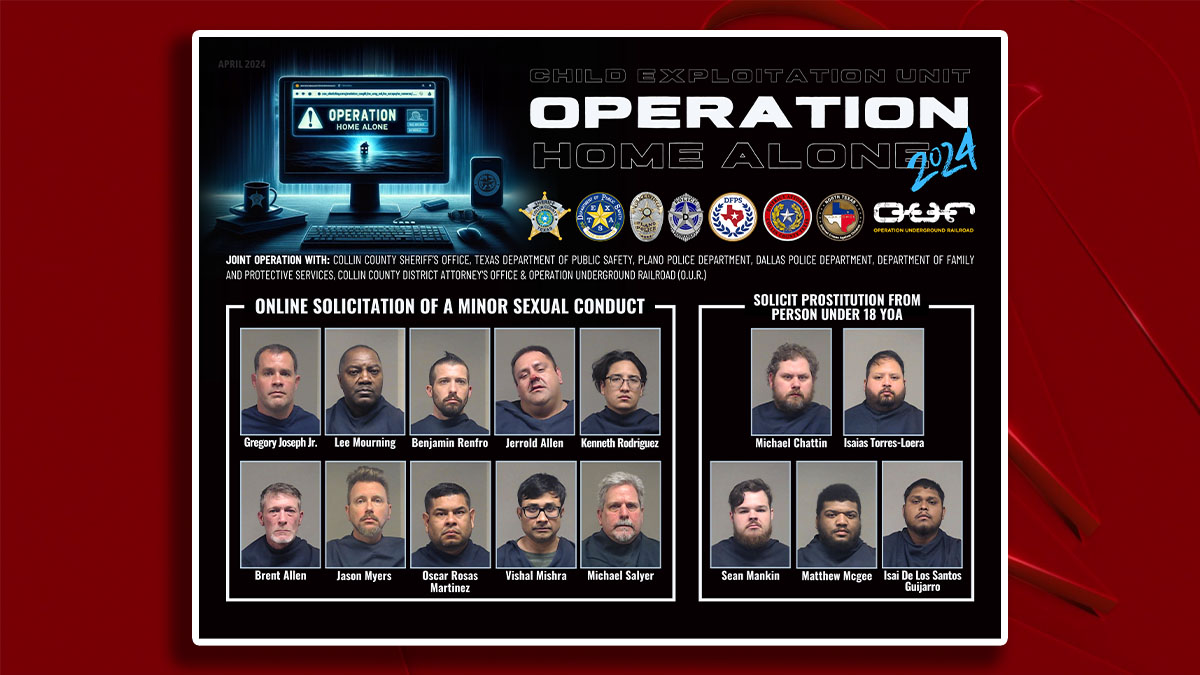Peace has eluded retired Air Force Maj. Jeff Shelton for the better part of two decades.
The Houston Chronicle reports every time he parachuted into enemy territory, every time he held a dying friend in the back of a helicopter, every time he watched a child collapse from grave injuries, peace for Shelton seemed to slip farther and farther away.
He found his inner anguish only intensified when he retired from the military in December 2016 and finally had time to process all the wickedness he had seen in the world. It was almost too much for the 42-year-old to process, until he walked into his Junior ROTC classroom inside Lamar Consolidated High School later that month.
"I didn't take the time to deal with my past. I had a lot of friends commit suicide or die -- some of them died with me in the back of a helicopter. I just never dealt with it," Shelton said. "So here, I found a lot of peace in helping (the students) transition into adulthood."
Shelton is among more than 3,000 veterans in Texas and more than 20,000 nationwide who traded bulletproof vests for textbooks to become teachers supported by the Troops to Teachers program.
The U.S. Department of Defense program helps recent veterans navigate teacher certification processes, military benefits and the other logistical headaches of switching careers, said Christene Nemetsky, project coordinator with the state's Education Service Center Region 13.
Nemetsky went through the program herself in the early 2000s before the Army major was recalled to active duty in 2004. She returned to serve as a school administrator in 2005.
Local
The latest news from around North Texas.
"They're not afraid of the hard work, they're not afraid of dealing with whatever the kids throw at them," Nemetsky said of veterans in classrooms. "As an administrator, I saw a lot of teachers leave after a year -- it's hard work 187 days a year. But (veterans) will do what it takes to do to give that child what they need."
Few teachers have military experiences matching Shelton's.
He spent four years with the Marine Corps before attending the U.S. Air Force Pararescue Indoctrination course in 1999, among the military's most rigorous and elite training programs. Shelton was embedded with prestigious units such as Navy SEAL teams, meaning he saw a lot of combat.
He deployed with the first special operations forces sent to Afghanistan after Sept. 11, 2001, partnering with allied Afghani tribal leaders to fight the Taliban before becoming a combat rescue officer. He spent as many as 72 hours awake on some missions, jumping out of helicopters to save soldiers trapped in enemy territory, taking airfields and tracking the movements of enemy combatants.
In 2008 alone, he flew more than 55 combat missions and saved the lives of more than 40 soldiers and Afghani citizens.
But the lives Shelton remembers most are the ones he could not save.
Jason Cunningham, a friend Shelton made during years of pararescue training, ran into a firefight and was shot in the stomach in 2002. Shelton said his fellow soldiers pleaded with superiors to let them fly to him, but commanding officers worried a rescue helicopter would be shot down.
It took eight agonizing hours for Cunningham to die from blood loss, according to the Military Times.
But Shelton's biggest battle came when he left the military in 2016.
"I started realizing that (the military) was the world I lived in, but it wasn't the world for most people in our country," said Shelton, who on occasion rubbed his broad, heavily tattooed arms. "That was the hardest part to deal with -- how do I come to terms with the fact I lived this other life and try to assimilate into this society where it seems like there's a lot of controversy and heartache over things that aren't important?"
Many of Shelton's JROTC students know little about the wars in which he fought or the events that precipitated them, including the Sept. 11 terrorist attacks on New York City and Washington. Though the lack of recent memory shocked him at first, Shelton said he enjoys telling his classes first-person accounts of history-deciding battles.
Students can't get enough.
On a recent Thursday, a few weeks before most Lamar Consolidated Independent School District students return to class, his JROTC classroom was filled with smiling cadets organizing textbooks and cleaning shelves to prepare for the school year.
Aadi Shukla, 16, and a rising junior said he was eager to see Shelton again.
"He might seem intimidating on the outside, but he's a nice guy for sure, really caring," Shukla said. "He's sort of like a father figure. One day there was some bad stuff going on at home, and he pulled me aside and asked what was wrong. He wouldn't let me leave until we talked about it."
Forging such relationships is the main reason Shelton wanted to go into teaching, and he said he's excited to see familiar faces when school begins in a few weeks. That's a big change from last year, when he was still reeling from the transition to civilian life.
Shelton said the past year has seen him get closer to finding inner peace, aided by weekly yoga practice and daily meditation.
Still, he struggles to see the world from his students' perspectives.
"The hard thing has been relating to innocence, because that's what it is to me," Shelton said. "It's nice to see because I think what happens to people, especially in my line of work, is you lose innocence quickly."



